People with troublesome resumes often have a difficult time in the labour market. HEYHO wants to do something to fix this; the granola manufacturing team based in Lüneburg, Germany, includes former convicts and people with backgrounds of addiction and mental illness. HEYHO received the special Social Entrepreneurship prize of the KfW Entrepreneurs’ Award for this pioneering concept.
The scent of cake wafts through the austere production hall. The batch of “Apfel Stroodle” granola is just cooling off. Romano reaches into the raspberries with both of his hands and mixes the next variety before it is placed on the large sheets for oven roasting. In the next room, online orders are being packed into boxes with the HEYHO logo. Feel-good music is playing on the radio.
The fact that Romano works here is not a given, as he has a turbulent past – drugs, criminal offences, jail. No one wants to hire people like him, even when they have left their pasts long behind them. But Romano was able to get the job at HEYHO two years ago. “The work and structure help a lot. I am level-headed and actually feel really happy. Even my dog has noticed that I’m doing well,” he says.
A team with vision
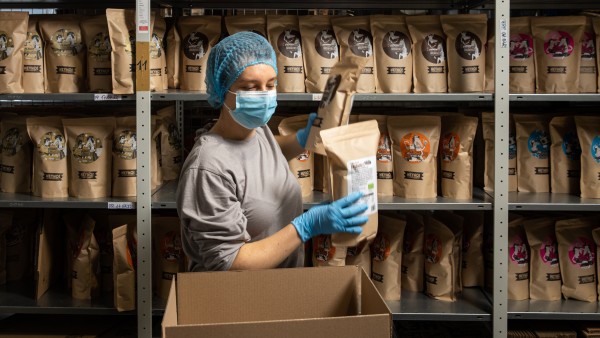
In order to save on packaging, many customers are already resorting to larger quantities, and retailers are also increasingly including them in their product ranges.
Stefan Buchholz, one of HEYHO’s founders, is a social worker. He spent many years managing a facility for the homeless. That is also where he met Romano – and other people who have troublesome resumés. Many of them want to and are able to work but are unable to find a job. HEYHO gives them a chance.
Buchholz founded HEYHO together with Timm Duffner and Christian Schmidt, who had already worked together for the Ben & Jerry’s ice cream brand. He told them about the Greystone Bakery in New York that employed former convicts. The trio couldn’t stop thinking about that idea. But employing people requires a company – and a business idea. So they founded a granola roasting company according to the motto: “we don’t employ people to roast oats, we roast oats to employ people.”
They chose granola because many aspects of the preparation can be done by hand. That creates jobs and initially doesn’t require expensive equipment. But they were greeted by scepticism from all sides and were told that their goals were too ambitious, their employees unreliable. No one wanted to finance the company. But the founders didn’t give in to discouragement. They borrowed seed capital and used an associated graphic design firm to create an eye-catching design.
In 2017, they began work as subtenants of the University of Lüneburg cafeteria. Demand slowly but surely grew, as did the team. In 2019, they moved to their own roasting facilities with an adjoining office and enough storage.
Fair and environmentally friendly products
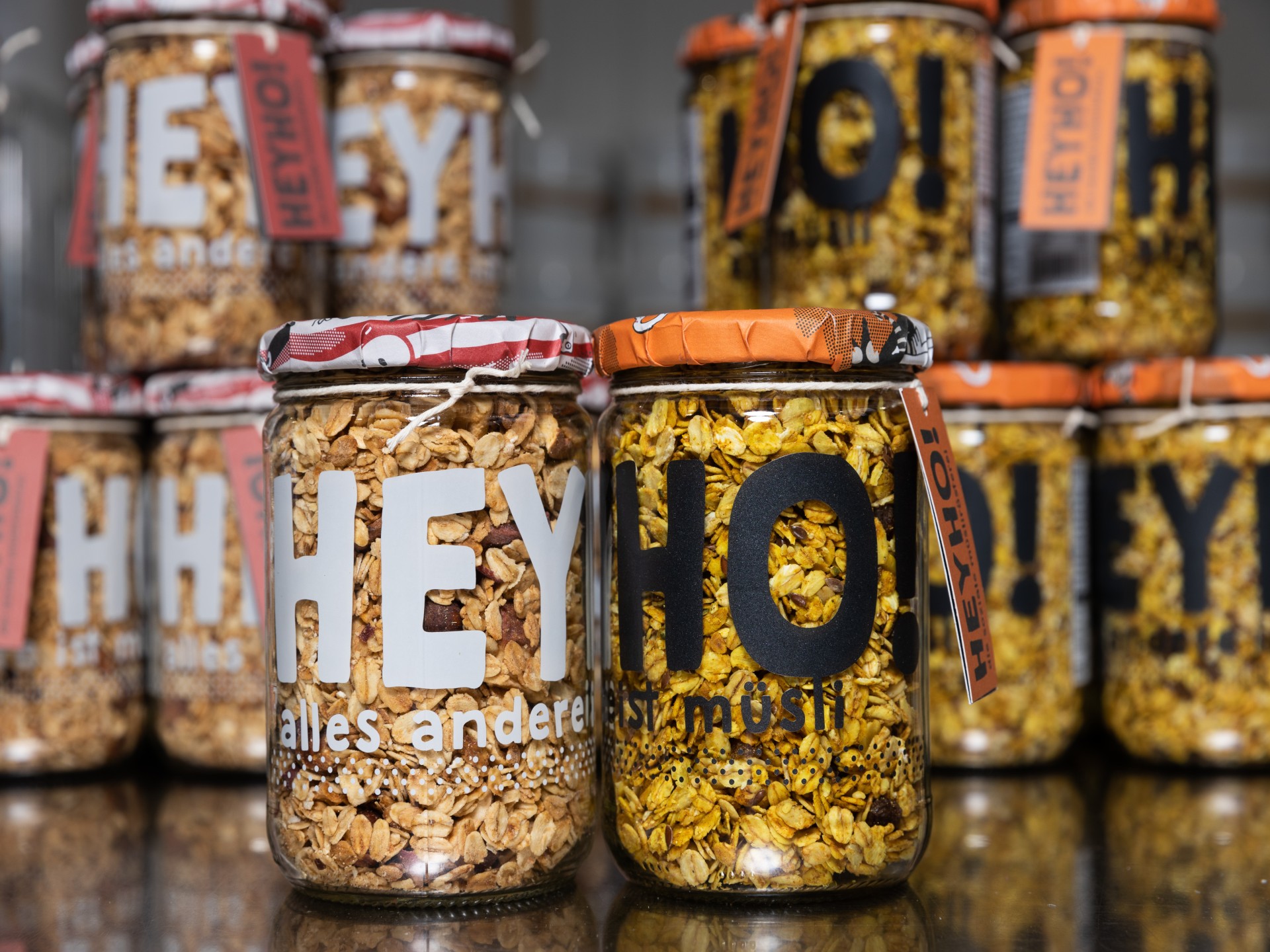
The muesli is available in glass jars or in bulk packs, and unpacked shops receive it in large deposit buckets.
Today, HEYHO sells six handmade varieties. They receive orders of up to 300 kilos per day. The ingredients are vegan, organically grown and mostly regional. The company makes sure that the chocolate, coconut oil and agave syrup are produced under fair working conditions in the source countries. To produce less refuse and plastic waste, the granola comes in a jar or in bulk packaging. Shops that sell the product without packaging receive the granola in large reusable buckets. HEYHO was able to make it through the difficulties of the coronavirus pandemic thanks to their efficient online shop.
To ensure that staff have enough variety in their work, they rotate through all of the production steps. Very little is automated at HEYHO, intentionally so. “We ultimately want to give people things to do – not machines. We are growing and will procure more equipment, but we will never be the type of business where people simply press buttons”, says Christian Schmidt.
Participation without prejudice
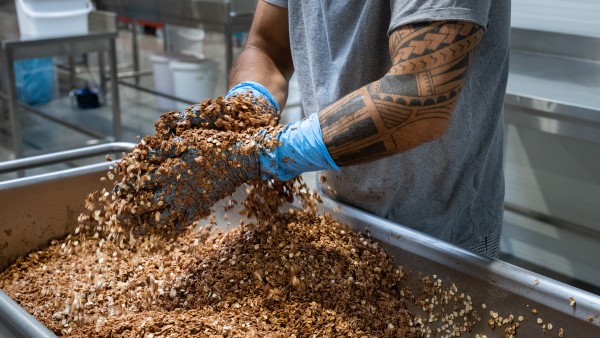
The first step is to mix everything thoroughly in large steel tubs!
Patrick’s favourite station is when he works in the fulfilment centre. He diligently packs orders and includes a signed card in each box. “I can do my own thing here, and I think I do a pretty good job”, he says. He was considered a job seeker with “multiple application obstacles”. “Heroine and anything that got me high”, was part of his life for thirty years. Methadone substitution treatment was the turning point; he went back and finished his secondary school leaving certificates with very good grades. Despite his efforts, he was unable to find work – until the job centre recommended HEYHO. “I am happy here. I notice my mental health has improved. I feel more valuable”, says Patrick.
Promotion for new prospects
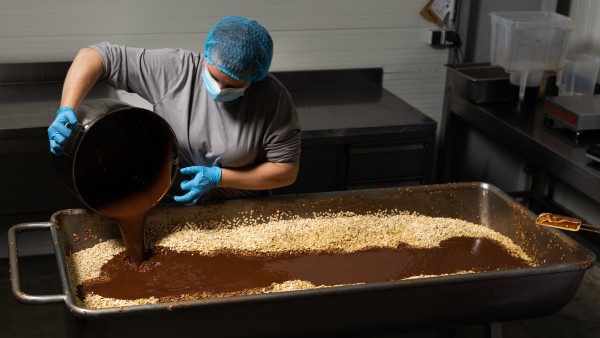
The mixture of chocolate and oats is refined with other ingredients after roasting and enters the glass as a late night breakfast.
Within the scope of legislation to increase participation opportunities, the employment agency is subsidising the wage costs for employees like Patrick and Romano. “Of course that helps”, says Christian Schmidt. However, there was no understanding for the fact that HEYHO would employ people permanently. “But we take the creation of long-term prospects seriously. Laying someone off as soon as the promotion stops is not our goal.” In addition to permanent contracts, everyone is paid the same hourly rate.
In total, 26 people work at HEYHO, one third have colourful histories. “Of course there are challenges and conflicts, too. Some people experience good and bad phases and psychological illnesses. We aren’t able to simply conjure them away, but we can be an empathetic and good employer, even if someone is only able to work four hours a week”, emphasised Schmidt.
A role model for many
The business founders measure success in more than just good business figures; they also measure it in the opportunities they create. They want to use this to inspire other companies, especially operations that have a hard time finding staff. “There are enough people who want to work. We simply have to let them”, says Christian Schmidt.
After two rounds of roasting, the busy hall becomes quieter. Milad is in the kitchen, clattering dishes. He cooks for the entire team every day. And when the very different staff members sit together at the table, HEYHO doesn’t feel like a social experiment at all – it looks like a great idea.
Published on KfW Stories: 28 October 2021.

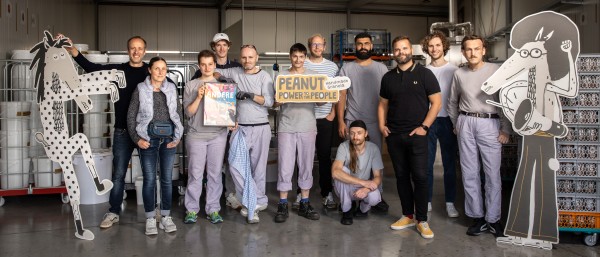
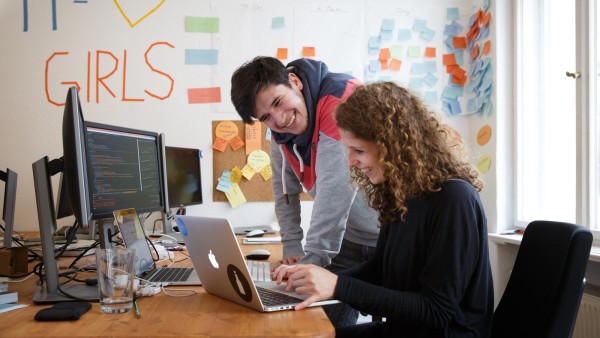
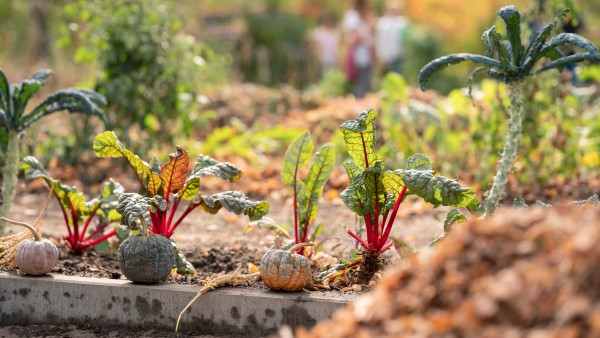
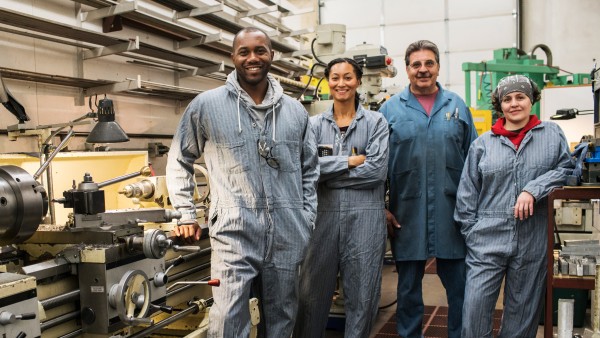
Data protection principles
If you click on one of the following icons, your data will be sent to the corresponding social network.
Privacy information